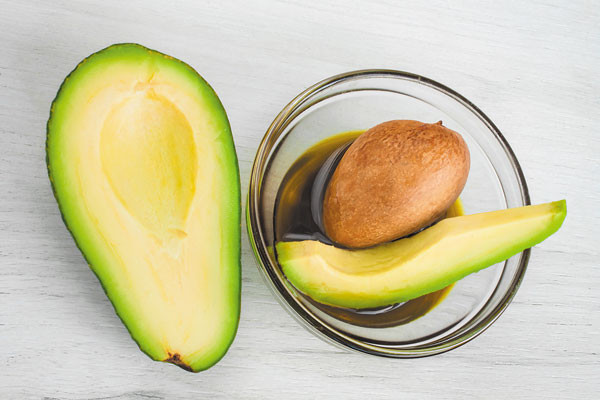Recent Articles

Forearm workouts: Strengthening grip for everyday function

Depression symptoms: Recognizing common and lesser-known symptoms

Medication side effects: What are your options?

Independent living with home care assistance: Balancing autonomy and support

Dialysis: What to expect from this life-changing — and lifesaving — treatment

The BEEP program: Keep your balance

Hoarding: What to know about this mental health disorder

21 spices for healthy holiday foods

Listeria: How to protect yourself from this common cause of food poisoning

Adult day care can benefit older adults and their caregivers
Diet & Weight Loss Archive
Articles
Want healthy feet? Keep a healthy weight
Image: ASIFE/ iStock
Being overweight can lead to a host of health problems, from high blood pressure and heart disease to arthritis, gallstones, and sleep apnea. It can also contribute to foot problems in two ways.
First, excess weight contributes to the misery of common structural problems such as heel pain and arthritis. Any foot ailment is more painful the more weight you put on it. Second, excess pounds increase your chances of developing atherosclerosis, poor circulation, and diabetes — all of which can damage your feet.
An easy way to soup up your diet
Soups with healthy ingredients help boost your nutrition. But watch out for extra salt, sugar, fat, and calories.
Image: Karissa/ Thinkstock
A bowl of soup is comforting and convenient. Make a big batch at home, and you'll have enough for extra meals. Stick to healthy ingredients, and it's an easy way to increase your intake of vegetables, protein, fiber, or even fruit. Maybe that's behind the popularity of soups, which are increasingly showing up as gourmet restaurant fare; in soup "bars" offering rotating varieties; at tiny take-out windows; and in grocery stores.
But this simple soul food has hidden risks. "You must be careful about the ingredients and what you pair with it," says registered dietitian Kathy McManus, director of the Department of Nutrition at Harvard-affiliated Brigham and Women's Hospital.
Harvard researchers link “good” fats with longer life
It appears that eating more saturated and trans fats is associated with earlier death, while eating more polyunsaturated and monounsaturated fats is associated with longer life.
The Nutrition Facts label finally gets a makeover
Updates that may benefit heart health include details on added sugars and more accurate serving sizes.
Image: Noel Hendrickson/ Thinkstock
The information on the Nutrition Facts label—that small box of nutrition-related data on the back of all food packages—has stayed pretty much the same since its introduction back in 1993. But earlier this year, the FDA approved a number of revisions to the panel. The changes reflect the evolving scientific evidence on the connections between diet and chronic illness—particularly obesity and heart disease.
The updated labels won't be mandatory for nearly two years, but the agency provided a preview (see "The new label: What's different?"). These changes may benefit consumers not only by helping them choose more nutritious foods, but also by driving the food industry to make products healthier, says Dr. Eric Rimm, professor of epidemiology and nutrition at the Harvard T.H. Chan School of Public Health. Many of the changes are relevant for people concerned about heart disease—especially the new data on added sugars.
Fatty liver disease and your heart
About one in three adults has nonalcoholic fatty liver disease, an often-silent condition closely linked to heart disease.
Image: decade3d/ iStock
The largest organ inside your body, your liver performs hundreds of vital functions. It converts food into fuel, processes cholesterol, clears harmful toxins from the blood, and makes proteins that help your blood clot, to name a few. But an alarming number of Americans have a potentially dangerous accumulation of fat inside their livers. Known as nonalcoholic fatty liver disease (NAFLD), this condition is a leading cause of chronic liver disease in the United States—and an increasingly recognized contributor to heart disease.
"NAFLD increases the risk of heart disease independent of other traditional risk factors such as high blood pressure and cholesterol," says Dr. Kathleen Corey, director of the Fatty Liver Disease Clinic at Massachusetts General Hospital. Among people with NAFLD, heart disease is the top killer, accounting for more than 25% of deaths.
Cancer and diet: What’s the connection?
Your dietary habits can promote cancer or protect against it.
Image: Udra/ Thinkstock
The link between cancer and diet is just as mysterious as the disease itself. Much research has pointed toward certain foods and nutrients that may help prevent—or, conversely, contribute to—certain types of cancer.
While there are many factors you can't change that increase your cancer risk, such as genetics and environment, there are others you can control. In fact, estimates suggest that less than 30% of a person's lifetime risk of getting cancer results from uncontrollable factors. The rest you have the power to change, including your diet.
Are fresh juice drinks as good for you as they seem to be?
Cold-pressed juices and smoothies can add fruits and vegetables to your diet, but they can also pack in calories.
Image: Mermusta /Thinkstock
According to food industry statistics, there's a healthy trend afoot. People are shifting from sugary sodas and processed bottled juice drinks to beverages like cold-pressed juices and smoothies. Sales of juice extractors and blenders lead the small-appliance market, and juice bars continue to spring up on city streets, in shopping malls, and even in supermarkets.
There are a couple of reasons people are taking to these beverages, says Kathy McManus, director of the Department of Nutrition at Harvard-affiliated Brigham and Women's Hospital. "They think they are doing something healthy, and the beverages can be time savers. It can be faster to grab a smoothie in the morning instead of sitting down to breakfast."
Tracking bites and using a smaller plate helps control eating, study shows
Both wearing a bite counter and eating from a small plate were linked to lower calorie consumption.
Weight-loss surgery: Moving into new dimensions?
Bariatric surgery can dramatically improve type 2 diabetes and other risks for heart disease.
The latest statistics on obesity suggest that this disease remains a huge problem in the United States: nearly one in three American adults meet the criteria for obesity. What's more, about one in 10 women and one in 20 men are considered extremely obese (see "Obesity in the extreme").
People with extreme obesity face a high risk of cardiovascular disease and myriad other health problems, as well as a shortened life span. Most have struggled with excess weight since childhood or early adulthood, and many have undergone multiple, frustrating attempts to shed pounds. For some, weight-loss surgery (also known as bariatric surgery) may be the best—perhaps only—option for lasting weight loss.
Should I know my percentage of body fat?
Body fat percentage provides valuable information about your overall risk for diseases like heart disease and diabetes, but determining your body mass index and measuring your waist size offer easy the best tools for estimating total body fat.
Recent Articles

Forearm workouts: Strengthening grip for everyday function

Depression symptoms: Recognizing common and lesser-known symptoms

Medication side effects: What are your options?

Independent living with home care assistance: Balancing autonomy and support

Dialysis: What to expect from this life-changing — and lifesaving — treatment

The BEEP program: Keep your balance

Hoarding: What to know about this mental health disorder

21 spices for healthy holiday foods

Listeria: How to protect yourself from this common cause of food poisoning

Adult day care can benefit older adults and their caregivers
Free Healthbeat Signup
Get the latest in health news delivered to your inbox!
Sign Up











